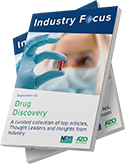In a recent study published in Nutrients, researchers reviewed the effect of mushroom consumption on the risk factors, morbidity, and mortality associated with cardiometabolic diseases.

Background
Drug Discovery eBook

With low sodium content and no fat or cholesterol content, mushrooms are a unique food source rich in various essential nutrients such as potassium, selenium, and B vitamins. Mushrooms also contain bioactive compounds such as lovastatin, polyphenols, beta-glucans, ergosterol, and L-ergothioneine with cholesterol-lowering, anti-inflammatory, and antioxidant properties. Additionally, ergosterol obtained from mushrooms is converted to vitamin D2 upon exposure to ultraviolet rays.
Studies on bioactive compounds isolated from mushrooms have reported a range of cardioprotective effects, such as the reduction of lipids, cholesterol, and blood pressure through various mechanisms. Lovastatin is thought to inhibit the 3-hydroxy-3-methylglutaryl coenzyme A (HMG-CoA) reductase enzyme required in cholesterol production. Other studies have also reported anti-atherogenic and hypo-glycemic properties associated with compounds extracted from mushrooms.
However, most of these studies have examined the health benefits of pharmacological concentrations of bioactive compounds in mushrooms. Whether these cardiometabolic benefits can be observed with a general, non-species-specific consumption of mushrooms remains unclear.
About the study
In the present study, the researchers reviewed various peer-reviewed observational studies and randomized control trials that examined the association between the consumption of whole mushrooms and cardiometabolic diseases. All studies in English involving participants ages 18 or above, the consumption of whole mushrooms in the fresh or dried form, and reporting a minimum of one outcome were included in the review.
The examined intervention groups comprised individuals with high or statistically significant consumption of mushrooms, with comparative groups consisting of those who did not consume mushrooms or consumed significantly lower quantities of mushrooms.
The various examined outcomes included primary risk factors and morbidities associated with cardiometabolic diseases such as the levels of total, high-density lipoprotein (HDL), and low-density lipoprotein (LDL) cholesterols, and triglycerides, systolic and diastolic blood pressures, fasting plasma glucose, hemoglobin A1c (HbA1c), high-sensitivity C-reactive protein (hs-CRP), and morbidity and mortality associated with type 2 diabetes and cardiovascular diseases. The secondary outcomes consisted of the levels of very-low-density lipoprotein (VLDL), fasting insulin, apolipoproteins A and B, postprandial glucose, and C-peptides.
Results
The researchers reported that they were able to identify 22 articles comprising 11 randomized controlled trials and 11 observational studies that examined the association of whole mushroom consumption with various outcomes related to type 2 diabetes and cardiovascular diseases. The limited number of randomized clinical trials suggested that mushroom consumption was associated with improvements in plasma or serum triglyceride and hs-CRP levels but seemed to not affect the levels of lipoproteins, HbA1c, fasting glucose, other lipids, or blood pressure.
However, the observational studies revealed no beneficial effects of mushroom consumption on LDL or total cholesterol levels, blood glucose levels, cardiovascular diseases related morbidity or mortality, type 2 diabetes mellitus, or coronary heart disease. Furthermore, the association between mushroom consumption and other cardiometabolic outcomes such as HDL cholesterol, triglyceride levels, and blood pressure was considered inconsistent, or the evidence was considered insufficient, as in the case of outcomes such as the risk of stroke or cerebrovascular disease, HbA1c levels or hyperglycemia, and hs-CRP levels.
Based on the National Heart, Lung, and Blood Institute’s assessment of study quality, most of the studies were of poor quality due to issues with the study methodology and reporting of results. The authors believe that despite some of the studies reporting benefits for at least one of the investigated outcomes, the overall evidence for the beneficial effects of mushroom consumption on cardiometabolic health is weak because of the lack of robust study design, high dropout rates in studies, and analysis without an intention-to-treat perspective.
While many of the pre-post-experimental studies had clearly defined objectives and descriptions of interventions, they lacked a sufficient sample size and did not conduct multiple assessments before and after the interventions. Furthermore, no full-feed randomized control trials controlled the dietary intake, making the clear determination of the effects of mushroom consumption on cardiometabolic health difficult.
Conclusions
Overall, the findings suggested that while there were a few experimental studies that indicated the beneficial effects of whole mushroom consumption on certain cardiometabolic health indices such as blood triglyceride and hs-CRP levels, there is a need for a higher level of observational and experimental research on the association between increased dietary intake of mushrooms and cardiovascular and metabolic health.
- Uffelman, C. et al. (2023) "An Assessment of Mushroom Consumption on Cardiometabolic Disease Risk Factors and Morbidities in Humans: A Systematic Review", Nutrients, 15(5), p. 1079. doi: 10.3390/nu15051079. https://www.mdpi.com/2072-6643/15/5/1079
Posted in: Medical Science News | Medical Research News | Miscellaneous News | Disease/Infection News
Tags: Anti-Inflammatory, Antioxidant, Blood, Blood Pressure, Cardiometabolic, Cerebrovascular Disease, Cholesterol, Coronary Heart Disease, C-Reactive Protein, Diabetes, Diabetes Mellitus, Enzyme, Fasting, Food, Glucose, HbA1c, Heart, Heart Disease, Hemoglobin, Hyperglycemia, Insulin, Lipids, Lipoprotein, Mortality, Mushroom, Nutrients, Peptides, Potassium, Protein, Research, Selenium, Stroke, Triglyceride, Type 2 Diabetes, Vitamins
.jpg)
Written by
Dr. Chinta Sidharthan
Chinta Sidharthan is a writer based in Bangalore, India. Her academic background is in evolutionary biology and genetics, and she has extensive experience in scientific research, teaching, science writing, and herpetology. Chinta holds a Ph.D. in evolutionary biology from the Indian Institute of Science and is passionate about science education, writing, animals, wildlife, and conservation. For her doctoral research, she explored the origins and diversification of blindsnakes in India, as a part of which she did extensive fieldwork in the jungles of southern India. She has received the Canadian Governor General’s bronze medal and Bangalore University gold medal for academic excellence and published her research in high-impact journals.
Source: Read Full Article
